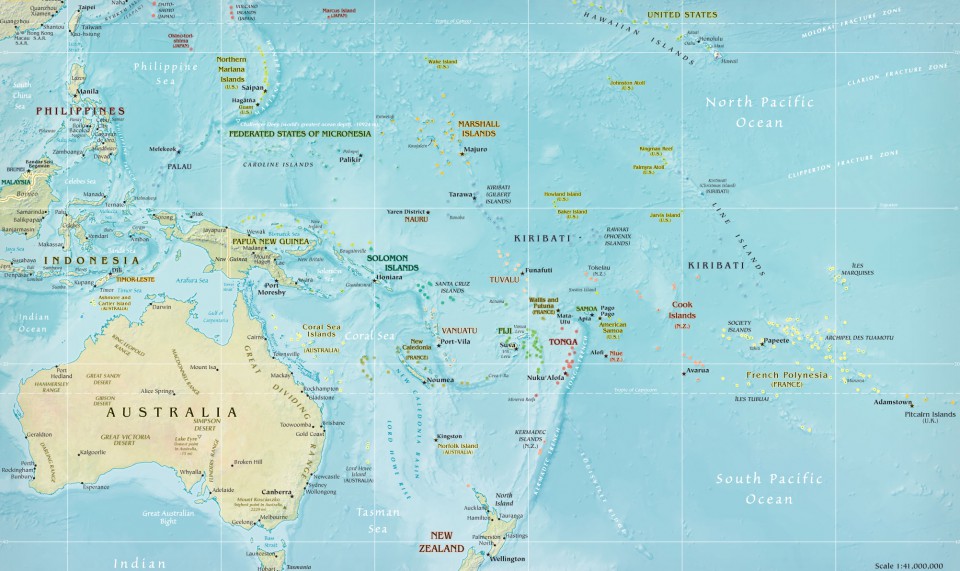Newsy letters home can provide moments of unguarded observation – and for historians, a snapshot of a particular social mentalite. In December 1943 Ivy Bennett, then an assistant lecturer in psychology at University of Western Australia, was visiting New South Wales on a study tour – to look at institutional care for state children and to visit the Psychology Department at the University of Sydney.She had just been awarded a Master of Arts for her study of the social behaviour of pre-school children. Her letter to her boss, Professor Robert Fowler, head of Psychology at the University of Western Australia, reveals not just a facility for acerbic observation, but clear grasp of the psychology discipline – and trenchant criticism of the state of teaching and practice amongst her New South Wales colleagues. The letter is dated 12 December 1943. (UWA Archives Cons 507).
On her arrival in Sydney after a long flight over Ivy visited several government institutions housing state children – comparable to those back in Western Australia. She recounted,
I don’t know whether you know any of these but I have been to NSW’s No.1 Delinquent Factory, the Girls Industrial School at Parramatta, which is a shocking place, full of 100 16 and 15 year olds with hair dyed blonde or red, a common ambition to either work in a milk-bar or go to Long Bay Prison, and a joint hatred for work, respectability and the barn-like conditions under which they live. It gave me much food for thought.
Ivy also visited ‘May Villa’ and ‘Castle Hill’, institutions for training ‘defective boy wards of the state’. The latter was less than 12 months old but have some ‘idea of the standard for which the Child Welfare Department is aiming for’. She visited the girl’s equivalent – ‘Brush Farm’ at Eastwood and ‘Montrose’ – a home for pre-school wards. She was most favourably impressed with ‘Lynwood Hall’ at Guildford ‘which caters for problem rather than defective or delinquent girls and is in the charge of two women graduate teachers’. Opened in 1939 the Lynwood Hall was managed by principal, Mary Lamond. She was succeeded by Edna McMaster, then Una Smith , Daphne Davies, Mrs Johnston, Jean King and Christine Conlon. Ivy agreed with the principles on which it was developed:
I spent a most engrossing morning being shown the routine of the place, and the very real work that is being done in developing the self-respect and self-direction in a group of 60 saucy young lassies which think they have learned about ‘life’ from their American servicemen friends.
It was Ivy’s discussion with psychology students at the University of Sydney that raised in her real, ethical concerns about the state of training in psychology in the eastern states. She listened to their disappointment with the course developed by Dr A H Martin assistant to Professor Tasman Lovell – renowned for his pioneering work. Dr Martin’s course she described as a ‘nasty pill which must be swallowed before the students are keen enough can get out and train themselves in practical mental testing – a self-training which must be most painful and arduous’. Ivy, whose work in this area was scrupulous and thorough, worried about the potential for misuse. ‘Most of them do astounding things with the Binet, have never heard of performance tests and make recommendations upon the basis of a doubtful Binet IQ which make my most incautious blunders appear pale pink beside them’.
I don’t want to appear over critical, but I’ve had the greatest difficulty keeping my opinions to myself in the face of the most obvious floundering and flagrant abuses of testing procedure among people supposedly trained graduates in psychology….Only the outstanding student who has it in him [can] get by on his own. A few others have awakened to their weakness and are very woeful about it but most just flounder and are very unhappy when abuse comes – to their credit – or give up in despair. I think the demand for real clinical training among the students is so strong that the Sydney Psychology Department must be either blind or deliberately ignoring it.
Interesting….
